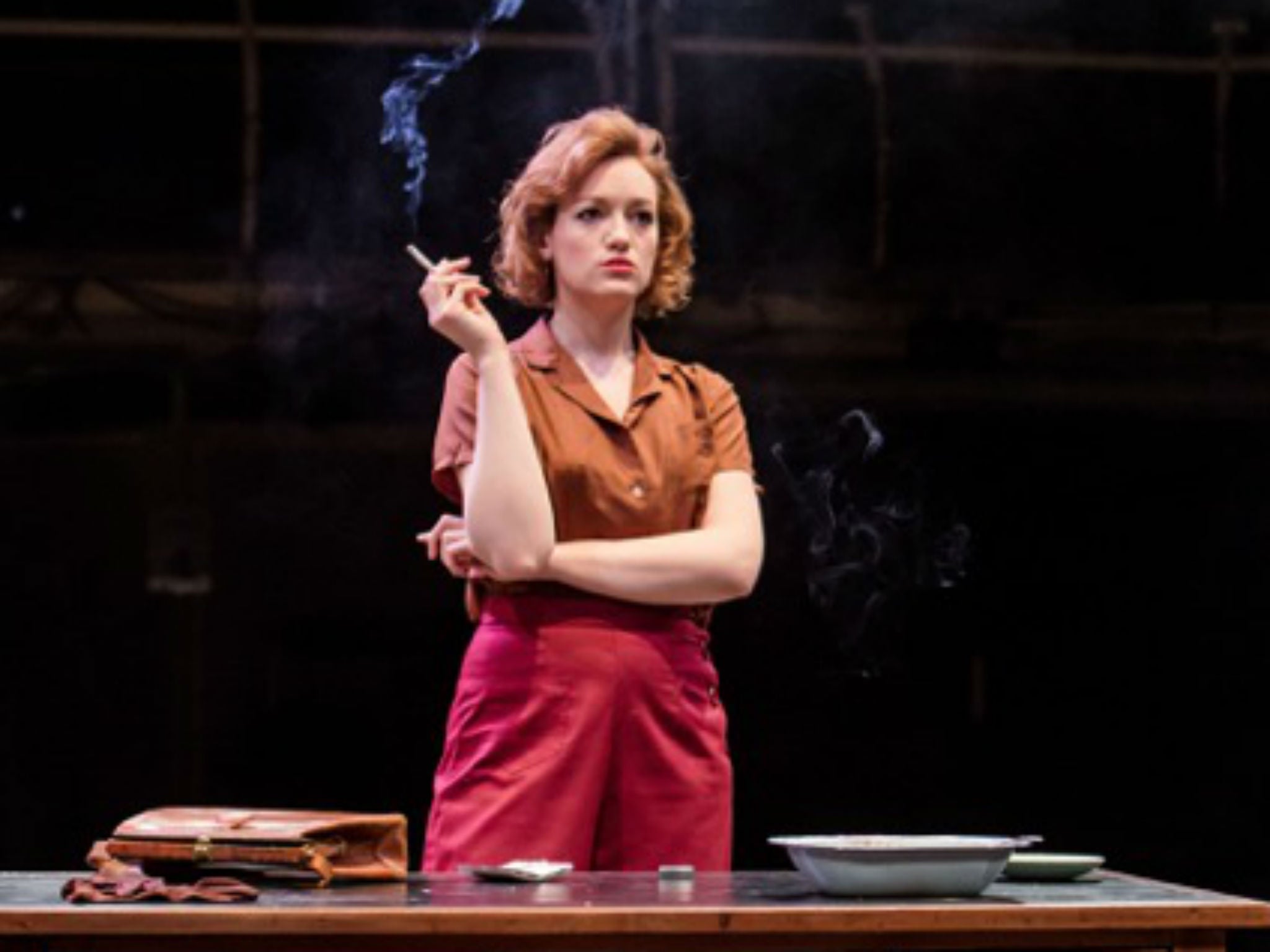The Night Watch, The Royal Exchange, review: Be patient, this burns with furious passion by the end
Backwards storytelling strangely intensifies its subject

Emotions run high in war – and not only on the battlefield. In The Night Watch a London ambulance crew works the night shift throughout the Blitz during the Second World War. The plot turns on how one ambulance officer falls in love with a woman trapped beneath rubble after a bombing raid. Woven through is the tale of a young woman who gets pregnant after an encounter with a soldier on a train – and the story of her brother who becomes a conscientious objector when his call-up papers arrive.
That could all be material for a conventional romantic fiction. But Sarah Waters’ Booker-shortlisted novel chose to tell the story backwards – as does Hattie Naylor’s sparse dramatisation at the Royal Exchange in Manchester. It begins in 1947, depicting the fragmented aftermath of its characters’ lives two years after the war is over. And it ends with the fateful moment when the lesbian ambulance officer rescues the woman who will become her lover.
The set design, by Georgia Lowe, cleverly underscores the narrative technique. The stage is on a revolve, with the inner part moving clockwise and the outer anticlockwise. It works ingeniously on several levels. It conveys the passage of time set back-to-front. It allows emotional distance to open up between unmoving characters. And, more mundanely, it addresses a problem which bedevils this in-the-round theatre, of actors always speaking with their back to part of the audience. The only problem is that sometimes the stage turns distractingly fast.
This is all more than a gimmick. As with Harold Pinter’s play Betrayal the backwards storytelling strangely intensifies its subject, spotlighting the nodal moments in the characters’ lives. Jodie McNee brings a fierce integrity to Kay, the ambulance-woman round whom the plot pivots. Kelly Hotten crackles with barely-suppressed emotion as Helen, the weak and wheedling manipulator who tempts Kay from her existing lover Julia – before dropping Kay and embarking herself on an affair with Julia. Lucy Briggs-Owen plays Julia with a fiery flamboyance as the third character in this lesbian ménage à trois. There are strong performances from the rest of the cast.
The allusive style of the first half, where the clues are laid for the key moments in the second, makes Rebecca Gatward’s production at times feel unnecessarily slow. But by the end it burns with furious passion.
Subscribe to Independent Premium to bookmark this article
Want to bookmark your favourite articles and stories to read or reference later? Start your Independent Premium subscription today.

Join our commenting forum
Join thought-provoking conversations, follow other Independent readers and see their replies
Comments